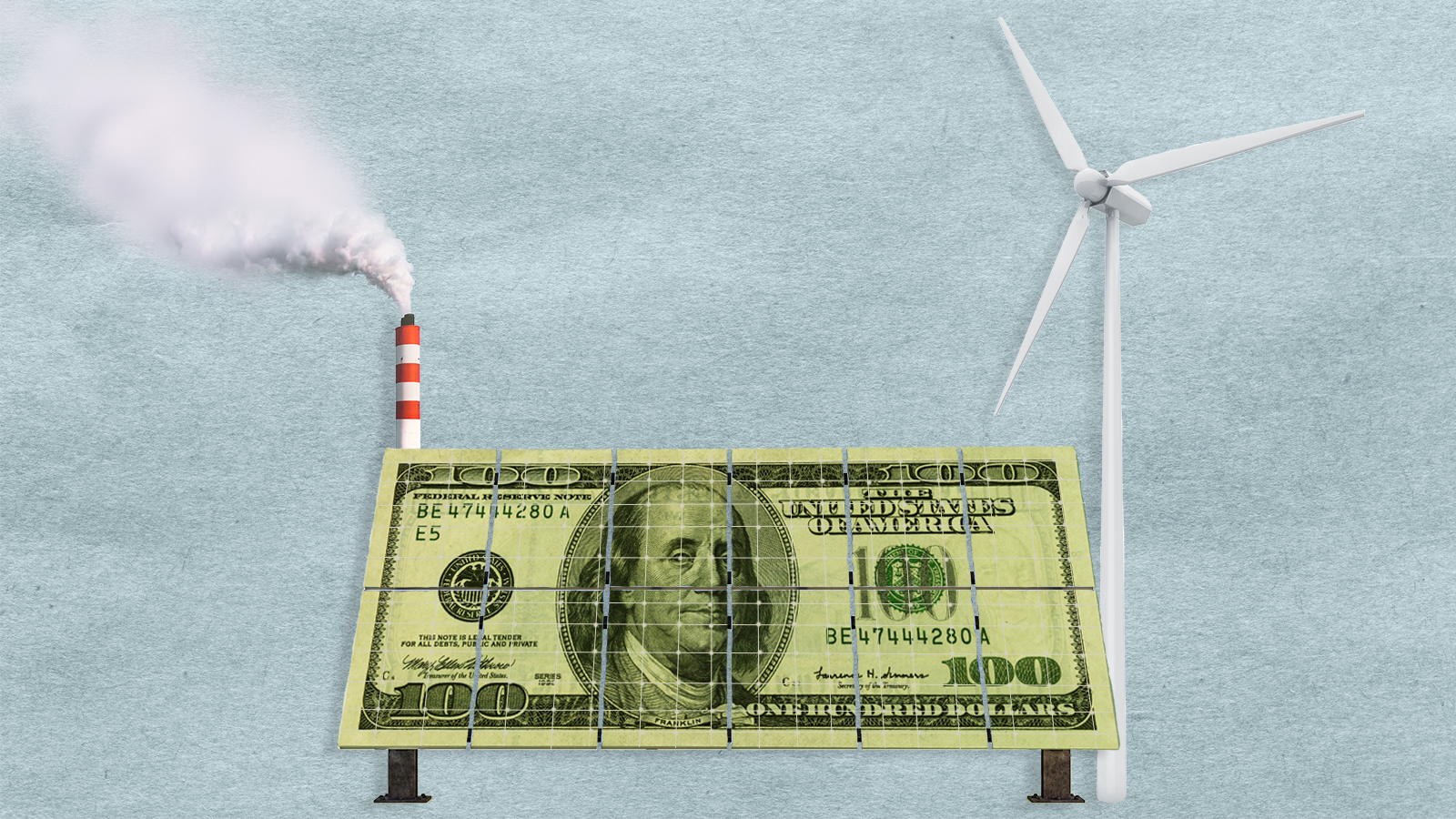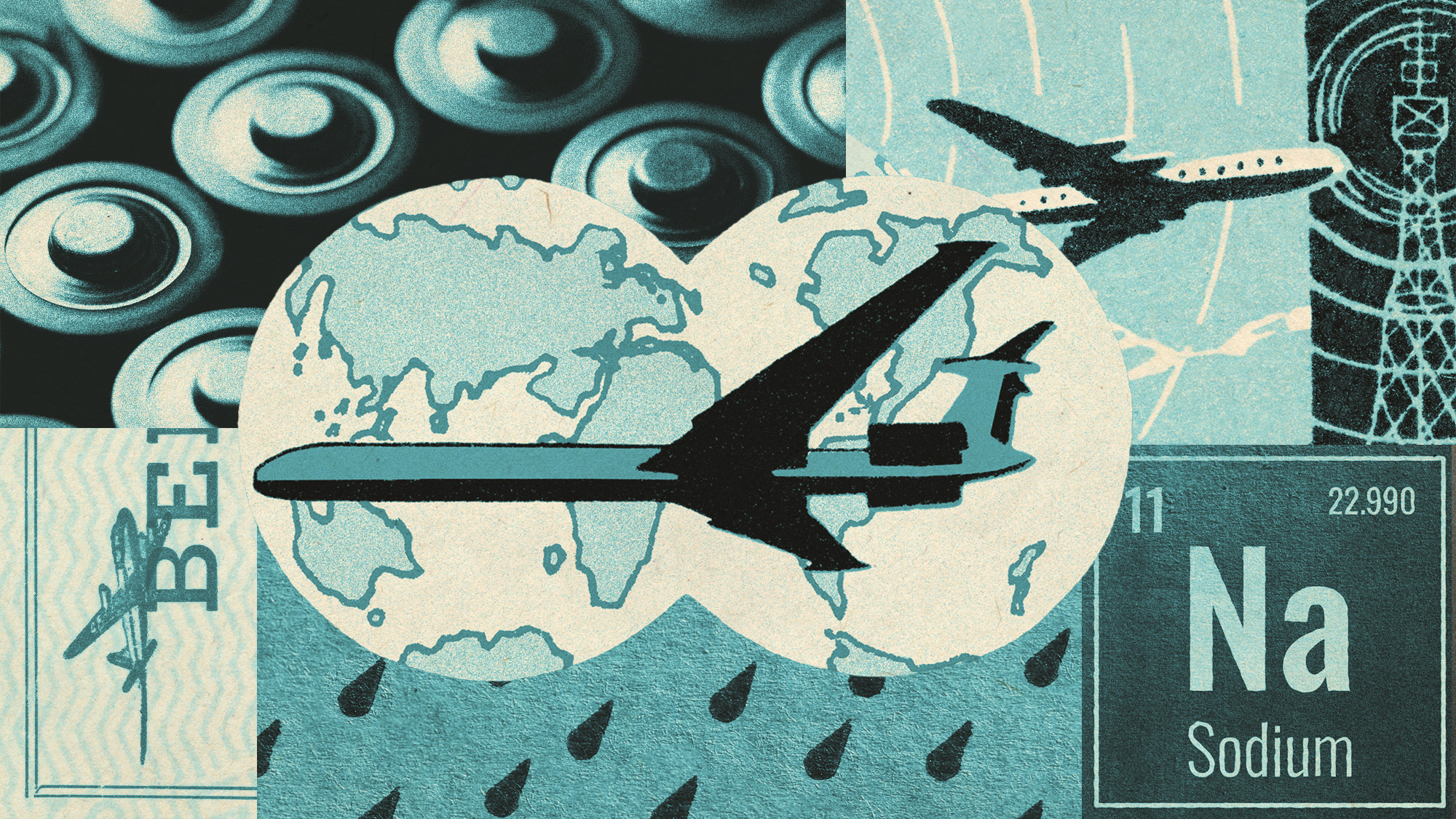How solar investments are powering the 'net zero' crusade
Renewable energy is growing as the world attempts to reduce carbon emissions


A free daily email with the biggest news stories of the day – and the best features from TheWeek.com
You are now subscribed
Your newsletter sign-up was successful
The world has reached a major milestone in the shift from carbon-based fuels to renewable energy: Investment in solar power exceeded the money put into oil development in 2022, CBS News reported. "For every dollar invested in fossil fuels, about 1.7 dollars are now going into clean energy. Five years ago, this ratio was one-to-one," said Fatih Birol, executive director of the International Energy Agency. Of the $2.8 trillion invested in the energy sector, $1.7 trillion went to "clean" sources.
What's driving the shift? "Energy security shocks created powerful incentives for policy makers to reduce vulnerabilities," the IEA said in its report. One of those shocks, of course, was Russia's invasion of Ukraine. The New York Times reported that Ukraine is shifting to wind power because of the war: It's easy enough to take out a traditional coal-fueled plant out with a single missile, but "doing the same to a set of windmills, each one hundreds of feet apart from any other, would require dozens of missiles." How quickly can renewables get us to "net zero" carbon emissions?
Why is renewable energy investment growing so fast?
Russia's invasion was a big spark for interest in renewables in 2022. (Ukraine last year built more wind turbines than England did.) But there are other factors. The IEA noted passage in the United States of the Inflation Reduction Act, which is investing $369 billion in climate-friendly technologies like electric vehicles and solar power, along with initiatives in Europe, Japan and China. It's not just governments foisting clean power on their citizens, though. "Consumers are investing in more electrified end uses," such as electric cars and heat pumps.
The Week
Escape your echo chamber. Get the facts behind the news, plus analysis from multiple perspectives.

Sign up for The Week's Free Newsletters
From our morning news briefing to a weekly Good News Newsletter, get the best of The Week delivered directly to your inbox.
From our morning news briefing to a weekly Good News Newsletter, get the best of The Week delivered directly to your inbox.
Are there obstacles?
There are big questions about whether the world's electrical grids are equipped to handle the shift. "We are seeing a pipeline of projects in Europe, US, and Asia and Africa where the grid is the main problem," Birol told The Guardian. "If you cannot reduce permitting time we will not be able to see the rapid expansion of renewables." (The recent debt ceiling deal reached by President Joe Biden and House Speaker Kevin McCarthy includes some provisions that streamline permitting for expansion of the electrical grid.)
Another complicating factor, Time reported, are rising interest rates designed to combat inflation. After a long decline, the "levelized cost" of wind and solar power — a term that encompasses "everything from construction to fuel to financing fees" — has started to rise. The investments in the Inflation Reduction Act may counter that trend, however.
How close are we to "net zero"?
The United Nations has set a goal of "net zero" carbon emissions by 2050. (That doesn't mean there will be no carbon emissions, only that what carbon makes it into the air will be "re-absorbed from the atmosphere, by oceans and forests for instance.") The good news is that "clean-tech manufacturing is expanding so fast that solar and battery manufacturing capacity are now on track" to meet 2030's milestones on the way to that goal, wrote Nathaniel Bullard at Bloomberg. Other technologies — wind power and heat pumps, along with battery capacity — still need to grow a bit more quickly to hit that pace. "While manufacturing capacity for wind, heat pump and electrolyzer tech is not ready to meet the demands of a net zero world today, it should be able to in the future."
What about cutting fossil fuels?
The flip side of getting to net zero, of course, is reducing most — if not all — of the world's carbon emissions. That is still a challenge. Worldwide carbon investments are expected to rise by 10 percent in 2023, The Associated Press reported, "nearly six times what the IEA has estimated they should be for the world to end its reliance on fossil fuels." And politics may make the effort more difficult still. The Republican crusade against "environmental, social and governance" investing is having an effect: A half-dozen major insurance companies have left a net zero alliance for fear of antitrust claims, Reuters reported.
A free daily email with the biggest news stories of the day – and the best features from TheWeek.com
But the latest energy investment news suggests there is real reason for optimism. "There's still a very long way to go," said Tim Gould, IEA's chief energy economist, "but there are finally some encouraging signs for us all to welcome."
Joel Mathis is a writer with 30 years of newspaper and online journalism experience. His work also regularly appears in National Geographic and The Kansas City Star. His awards include best online commentary at the Online News Association and (twice) at the City and Regional Magazine Association.
-
 The ‘ravenous’ demand for Cornish minerals
The ‘ravenous’ demand for Cornish mineralsUnder the Radar Growing need for critical minerals to power tech has intensified ‘appetite’ for lithium, which could be a ‘huge boon’ for local economy
-
 Why are election experts taking Trump’s midterm threats seriously?
Why are election experts taking Trump’s midterm threats seriously?IN THE SPOTLIGHT As the president muses about polling place deployments and a centralized electoral system aimed at one-party control, lawmakers are taking this administration at its word
-
 ‘Restaurateurs have become millionaires’
‘Restaurateurs have become millionaires’Instant Opinion Opinion, comment and editorials of the day
-
 How climate change is affecting Christmas
How climate change is affecting ChristmasThe Explainer There may be a slim chance of future white Christmases
-
 Why scientists are attempting nuclear fusion
Why scientists are attempting nuclear fusionThe Explainer Harnessing the reaction that powers the stars could offer a potentially unlimited source of carbon-free energy, and the race is hotting up
-
 Canyons under the Antarctic have deep impacts
Canyons under the Antarctic have deep impactsUnder the radar Submarine canyons could be affecting the climate more than previously thought
-
 NASA is moving away from tracking climate change
NASA is moving away from tracking climate changeThe Explainer Climate missions could be going dark
-
 What would happen to Earth if humans went extinct?
What would happen to Earth if humans went extinct?The Explainer Human extinction could potentially give rise to new species and climates
-
 Bacteria can turn plastic waste into a painkiller
Bacteria can turn plastic waste into a painkillerUnder the radar The process could be a solution to plastic pollution
-
 New York plans first nuclear plant in 36 years
New York plans first nuclear plant in 36 yearsSpeed Read The plant, to be constructed somewhere in upstate New York, will produce enough energy to power a million homes
-
 Sodium batteries could make electric flight viable
Sodium batteries could make electric flight viableUnder the Radar Low-cost fuel cell has higher energy density and produces chemical by-product that could absorb CO2 from the atmosphere
